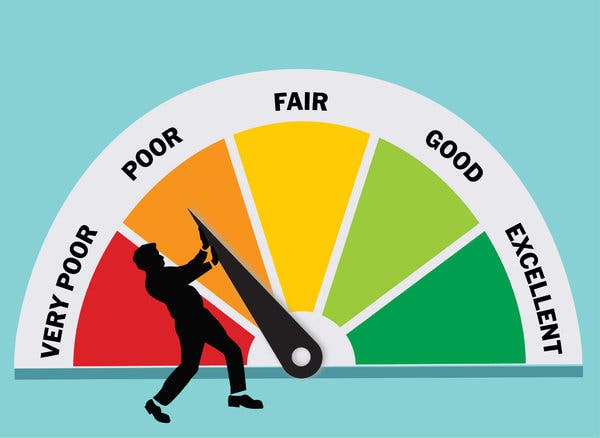|
I cannot stress enough the importance of maintaining good credit. Your credit and its rating will impact so many different aspects of your life – probably more than you know. Because of this, it is critical to protect it and always keep it in good standing. To shed some light on this - I wanted to share with you a detailed informative breakdown as to what your credit rating represents, and the many factors influenced by it. Credit Score? What’s that? Credit scores in Canada generally range anywhere from 300 to 900 points, with a score of about 650 being an ideal middle number. A score above 650, according to TransUnion, will generally help you qualify for most loans while a score below that may make it a bit more difficult. Interested in learning more about your credit? You may order a credit report from either credit reporting agencies in Canada (Equifax, TransUnion), or both, for free via mail or over the phone. This should be done at least once a year to stay on top of things. Wait.. what’s in my credit report? Your credit report comprises of all information related to your credit accounts, both active and closed. This includes the following:
How Bad Credit Affects You Credit scores are used in various aspects of life to determine your overall creditworthiness. This rating is sometimes used by your mortgage lenders, insurance companies, and even employers and landlords before offering you a job or rental contract. a) Potential Loans Whether it’s applying for a line of credit, a mortgage with the bank, or even a personal credit card, your credit score may affect your overall eligibility and whether or not your application gets approved. If approved, a lower credit score may also affect key terms of your loan, including your credit limit, as well as the interest rate provided. b) New Job Applying for a new job? Potential employers, depending on the company and role, may require permission to check your credit score as a part of their background check. Having a poor credit score may impact their hiring decision - which could ultimately cost you the job. c) Car Rentals As part of the application process for many car rental companies, a check on your credit history may be required to determine their overall risk with regards to your rental. Again, a low credit score may impact your ability to rent if there is a minimum credit score in place. d) Housing Prior to renting a house or apartment, your landlord may ask for your credit score in the application process. A lower credit score may prove the difference in selecting a candidate with a better credit history to become a tenant instead of you. How long does my information stay on my credit file? Actual inquiries made by credit grantors | min. 3 years Credit history & banking information | 6 years from the last activity date Bankruptcies | 6 years from the date of discharge Judgments, foreclosures, garnishments | 6 years from the date filed Collections | 6 years from the date of last activity Secured loans | 6 years from the date filed What information is used to calculate my credit score? Here is a list of the main factors which affect your credit score: 1. Payment History Paying late, missing a payment, or having your account sent to a collections agency can significantly affect your credit score. 2. Delinquencies Bankruptcies, charge-offs and collections can all negatively affect your score. 3. Balance-to-Limit Ratio Ideally, credit cards should be paid in full at the end of each month. If this is not possible, keeping your balance below 30% of your limit may help your score. Balances above 50% carried over each month may impact your score negatively. 4. Recent Inquiries Only apply for credit you really need. Applying for too many forms of credit at once may pull several hard checks on your credit file that remains noted. Every time a hard check is made, your score may be lowered a few points. The key to this is applying for credit in moderation, when needed. 5. Length/history of Accounts Having a longer history of accounts can definitely help your score. Even if you don’t use that old credit card as often, keeping the account open may appear more favourable than closing multiple old accounts. 6. Variety of Credit Accounts Keeping your credit diversified (credit card, car loan, student loan, etc) versus having only one type of credit may ultimately help your score. 7. Too many accounts Having too many credit accounts with outstanding balances may be a red flag for lenders, so definitely ensure to keep them in good standing. How to Raise Your Credit Score
Remember - your credit score isn't a measure of your self-worth. Sometimes it might be high, and sometimes it might be low. ____________________________________________________________________________ I hope this information helps bring some things to light and that you and your credit benefit greatly from it. If you have any questions regarding your credit or mortgage lending, please reach out to me. I’d be happy to assist any way I can. www.yourequityloan.ca |
Silver Hill BlogJim Horvath is the principal broker and director of Silver Hill Mortgage Corp., arranging private mortgage loans in British Columbia for over 25 years. Archives
May 2024
Categories |
|
Silver Hill Mortgage Corp. Head Office
2902 West Broadway | Suite #302 Vancouver, BC, Canada V6K 2G8 E: info@yourequityloan.ca P: 604.620.2697 F: 855.299.5832 (Toll Free) |
Stay in Touch |
About UsSilver Hill Mortgage Corp. is a trusted industry leader in delivering home equity loans and other private mortgage financing solutions for homeowners and bank declined customers in British Columbia. Get in touch to get approved today.
Copyright © 2024 Silver Hill Mortgage Corp. All rights reserved. |
Proudly serving our BC communities:
Vancouver Private Mortgage | Surrey Private Mortgage | Burnaby Private Mortgage | Richmond Private Mortgage | Abbotsford Private Mortgage | Kelowna Private Mortgage | Nanaimo Private Mortgage | Victoria Private Mortgage | White Rock Private Mortgage | Coquitlam Private Mortgage | Langley Private Mortgage
Vancouver Private Mortgage | Surrey Private Mortgage | Burnaby Private Mortgage | Richmond Private Mortgage | Abbotsford Private Mortgage | Kelowna Private Mortgage | Nanaimo Private Mortgage | Victoria Private Mortgage | White Rock Private Mortgage | Coquitlam Private Mortgage | Langley Private Mortgage




 RSS Feed
RSS Feed
